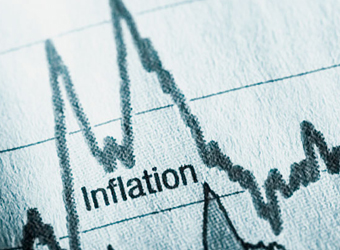Egypt’s key inflation indicators eased in September as the local market absorbed the impact of government fuel and energy price hikes earlier in the year, and analysts expect consumer prices to dip further in the coming months.
Annual urban consumer price inflation fell to 31.6 percent year-on-year in September from 31.9 percent in August, the official CAPMAS statistics agency said on Tuesday. Core inflation, which strips out volatile items like food, decreased to 33.26 percent from 34.86 percent, the central bank said.
Inflation soared in July to its highest since 1986 after the government cut fuel and energy subsidies. The cuts were a condition of a $12 billion, three-year loan programme agreed last November with the IMF, which included subsidy cuts, tax increases and looser capital controls.
“The decline in core inflation … confirms our expectation that the inflationary impact of energy and utilities price hikes is tapering off and demand-driven inflation is declining,” said Reham El-Dessouki, an economist at Arqam Capital.
The central bank raised its key interest rates by 200 basis points in a surprise move in July, seeking to ease the inflationary pressure, but has kept them steady since.
Analysts are watching inflation and other signals the central bank may soon move to cut benchmark interest rates. Egypt has raised banks’ reserve requirements, tightening monetary policy in what economists said may signal a cut soon.
“Egyptian inflation edged down further in September and we expect it to fall sharply in the coming months, prompting the central bank to start cutting interest rates,” London-based Capital Economics said in a statement on Tuesday. Source: ahram online
Source: ahram online


